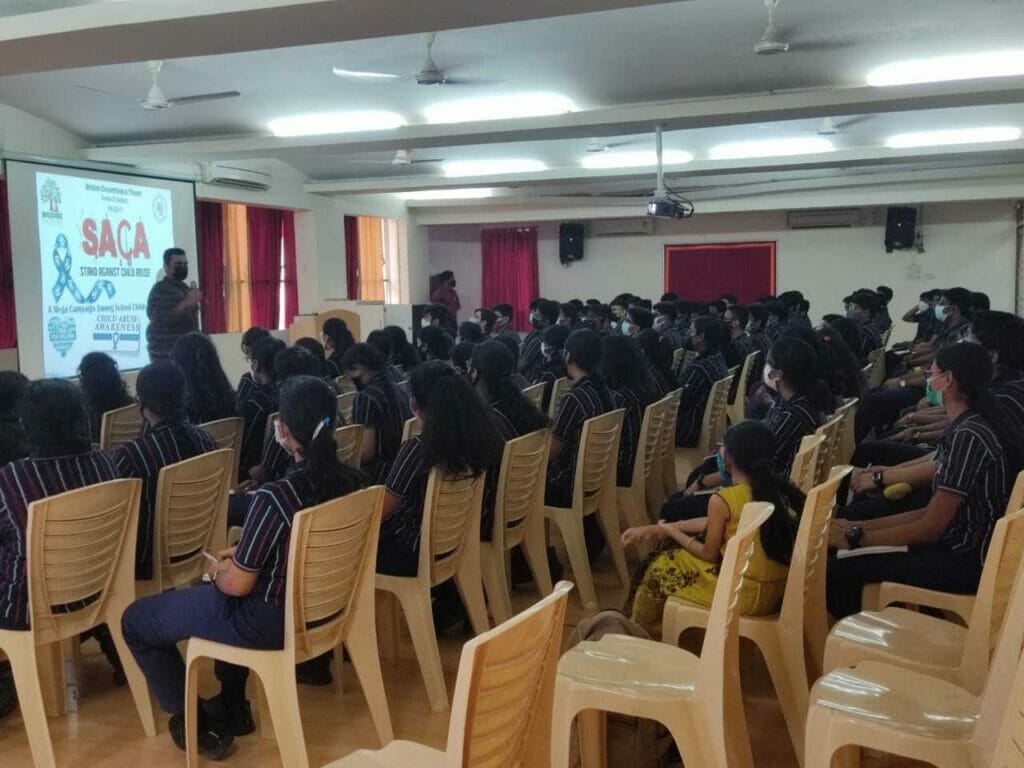The POCSO (Protection of Children from Sexual Offences) Act, was enacted in 2012. The Act aims to protect children under the age of 18 from offences of child sexual abuse and sexual harassment committed by adults. Despite the protections offered by this Act, cases registered under POCSO in Chennai have been on the rise as per the National Crime Records Bureau.
Every other day there are news items of harrowing instances of child abuse. In many cases, the offenders turn out to be family members or staff at the school. Those entrusted with the welfare of children abuse the trust placed in them to commit such heinous crimes.
One of the ways children can be protected from instances of harassment and abuse is through increased awareness. It is vital to help children understand boundaries and ensure that a mechanism is available for them to raise red flags. Sharing such information with children and ensuring their safety and well-being should be paramount, especially in schools.
With this in mind, we at Bodhi Charitable Trust evolved a sensitisation workshop on POCSO to be conducted in schools across the city, covering a broad range of issues.
Read more: Preventing child sexual abuse in schools: What teachers and parents must know
Taking a stand against child abuse
The name of the programme that is conducted across Chennai schools is Stand Against Child Abuse. It consists of an execution plan approved by the Chief Education Officer of Chennai, S. Mars. The programme was designed with assistance from Alima Zehera, Professor of Psychology and the Head of the Department of Psychology.
The sessions are run by the team from Bodhi along with volunteers from various colleges across Chennai. They begin with a general introduction followed by the screening of a short film on child abuse titled SAriCA. The discussion around the content of the film provides us with a starting point to delve into how children can recognise and report harassment and abuse. We share a presentation on the various ways in which abuse can be propagated so children are aware that even acts like stalking or grooming are an offence.
The session also covers how children and adolescents can safely use social media. With the growing number of instances of abuse and harassment being perpetuated by online acquaintances, safety and privacy are paramount.
Once the above ideas have been introduced, we then cover the salient features of the POCSO Act. The session details why the act came into being and its various provisions. We discuss the rights that the Act accords to children. The various reporting mechanisms available such as apps and toll-free numbers are also shared and children are encouraged to speak up if they or someone they know is being subject to abuse or harassment.
So far, the programme has been conducted in 30 government and private schools and has reached nearly 3000 students.
Response to the session on POCSO
The feedback we have received for the sessions has highlighted their importance and necessity. We have had children approach us with a range of questions on the subject after each session.
The learnings from the session are aimed at empowering children against abuse. There have been instances where children have confided in us about abuse or harassment that has taken place in their lives after getting a clear understanding of the issue from these sessions. In such cases, we have ensured that trusted adults are involved in handling the issue and following the appropriate course of action. We also make sure to direct the children to get the necessary psychological help through counselling.
We ensure that every child who attends the session is armed with enough knowledge about child abuse and the legal provisions under POCSO that can help protect them from such acts of cruelty.
Read more: Many Chennai schools reluctant to embrace sex education
Involvement of parents and teachers in session on POCSO
Initially, the programme was designed to be conducted jointly with parents and children during PTA meetings in schools. But due to constraints of time and the apprehension that children may be hesitant to open up about bad experiences in the presence of parents, the sessions have been limited to only involving the children.
The next step would be to educate both parents and teachers about dealing with issues faced by children and adolescents and how they can offer support to them and intervene when they come across abuse or harassment.
Despite government orders to this effect, very few schools have set up committees to look into matters of child abuse and harassment in schools. We strongly insist that they should create POCSO committees and ensure that children can approach them to report any such crimes and hold offenders accountable as per law.
While strides have been made through the workshop across many schools, there is a long way to go for the city’s children and schools to become adequately equipped to deal with the menace of child abuse. We hope that steps taken in this regard will be expedited and we march towards a future where no child is subject to such heinous acts.
